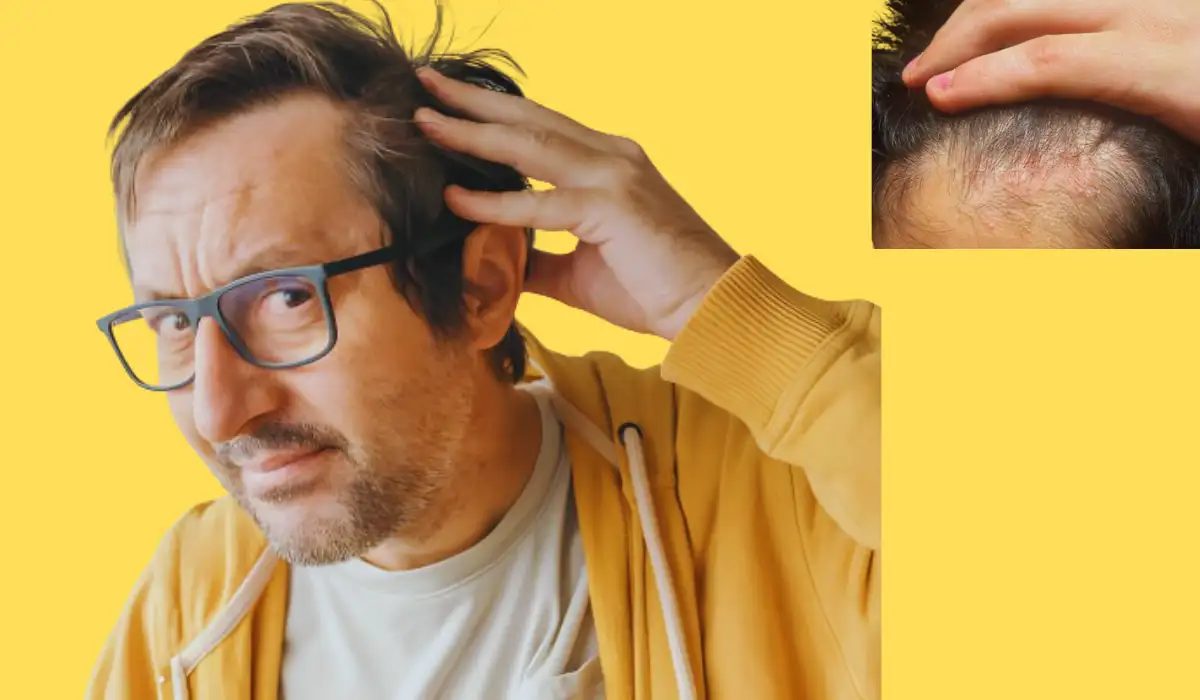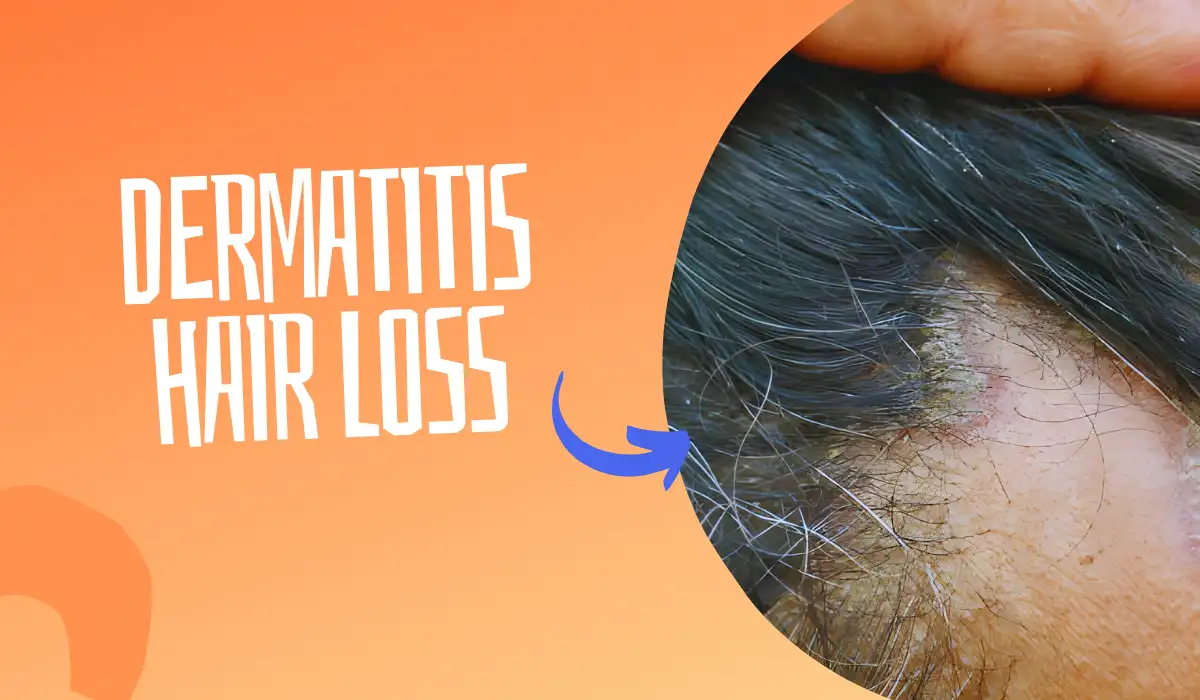Hair loss is a common problem faced by many people. There could be various reasons for this. For some, it could be stress for others some scalp issues.
However, all of us aim to find out the best way to solve it. Here is where it gets tricky. To solve a problem, we might need to find its root cause.
This article aims to find out how dermatitis leads to hair loss. Though it is pertinent to most people, only a few of them choose to talk about it in detail.
We will be making it easy for you by finding out the causes and even remedies to alleviate the problems caused by dermatitis. Read along to learn how to help yourself or your loved one.
What is Dermatitis?

Dermatitis is a common issue that affects one’s hair and scalp. In simple words, doctors like to describe it as the swelling of the skin which could manifest itself in various forms.
It could lead to itching or reddening of the area and in some cases even flakes. Dermatitis can also cause bleeding as a result of blisters appearing on the skin.
Generally, when looking for its reasons, we need to first determine the kind of dermatitis we are dealing with. This includes over 5 varieties including Atopic and Nummular which not only affect various regions but also could have multiple implications.
When it attacks the scalp, there should be no doubt about the fact that it could be threatening to your hair and its follicles.
How does dermatitis cause hair loss?
Dermatitis can be divided into various types which are,
👉Eczema
If you have a history of asthma or allergies in your family, chances are you are prone to developing eczema also known as atopic dermatitis. It is mainly characterized by the constant itching one undergoes in the affected areas including hands, legs, or even scalp.
👉Contact dermatitis
Like its name suggests, inflammation in this case occurs only when there is direct contact between the allergen and the area affected. The allergen product in this case could be powders, detergents, perfumes, or creams used on a particular area due to the substance included in the product.
It is often localized to the area where the substance comes into contact with and the chances of it spreading are none.
👉Seborrheic Dermatitis
Seborrheic Dermatitis is a kind of dermatitis that makes use of the sebum produced by the skin to protect its shine. This means an excessive production of it can lead to oily skin and hence make it the perfect place for dermatitis to occur.
👉Nummular Dermatitis
This is the kind of dermatitis that can form round patches on your skin where the itching is contained. Doctors believe that it is caused by dry skin and lack of moisture in general. However, the cause is yet to be pinpointed.
👉Dyshidrotic Dermatitis
Occurring on the hands and feet, it begins as blisters on hands and feet which could gradually develop into full-grown patches. It can also have additional symptoms such as reddening and bleeding in the skin and its surrounding areas.
Now let’s look at the causes which can directly lead to hair loss,
Trauma: With constant attack by microbes and other bacteria, the hair follicles undergo constant trauma which often stunts their development.
The inflammation also gives birth to a condition called scarring alopecia with the hair follicles completely damaged and the hair loss is permanent.
Itching: The constant itching and scarring of the scalp could not be conducive for the hair follicles to go. This amount of pressure could uproot hair strands and lead to patches of hair loss on the head.
Moreover, the scalp is unable to retain any conditioner or shampoo you might be applying to fight off the loss and hence the hair falls quickly.
Inflammatory response: The main idea behind dermatitis rests on the swelling of the skin which could then lead to secondary causes.
When there is constant swelling in the scalp, it affects the growing pattern of the hair and also gives birth to a problem called Telegon Effivium. When contracting this disease, younger hair strands don’t find a chance to survive and fall out in a jiffy.
Secondary infections: As a result of the attack by dermatitis, it is only natural that the scalp is affected by other microorganisms and bacteria that can diminish the quality of the hair growing on your head.
Chemical medications: People with dermatitis are given creams or shampoos to be applied to the scalp to get rid of the condition. There is a fair chance that these medications may interact with your scalp and even lead to hair fall.
Chemicals are never good for the hair and therefore there is no surprise that your hair starts thinning and ultimately breaking into large patches.
To fight off dermatitis you can always eat medicines or go for topical lotions but one should be careful how it could affect their scalp. Using chemically heavy lotions can damage the hair follicles permanently and lead to bald patches.
Additionally, it could also lead to the drying up of the moisture on the scalp due to constant itching and bleeding which is again catastrophic. We therefore suggest you use herbal creams and medicines that can go easy on the hair as well. Many natural substances like aloe vera could give promising results.
Conclusion
Hair fall is quite common and so is dermatitis. You may find it hard to believe but dermatitis is one of the leading causes of hairfall after stress.
To avoid this you should keep your hair clean, improve your diet, and use the correct hair treatments to retain its strength. Like your body, your hair also needs to be checked up for the necessary elements it has and when it doesn’t you should discard it.
Moreover, a lot also depends on the kind of product you use in various parts of the bosy which could start as a small itching and then snowball into a huge blister.

